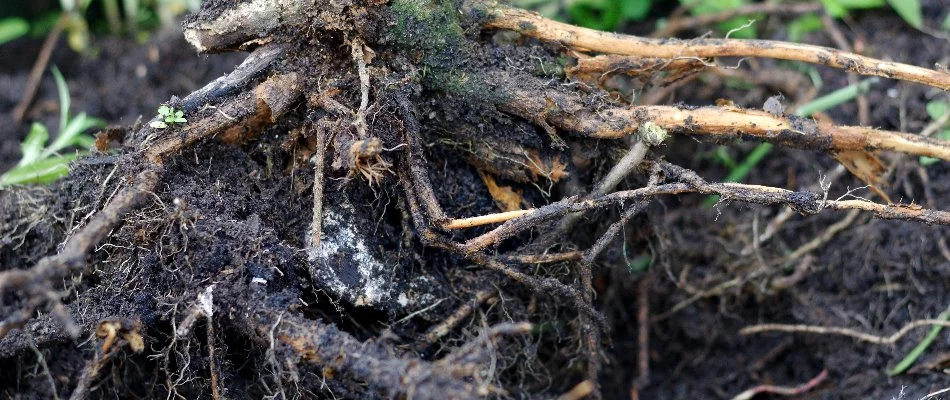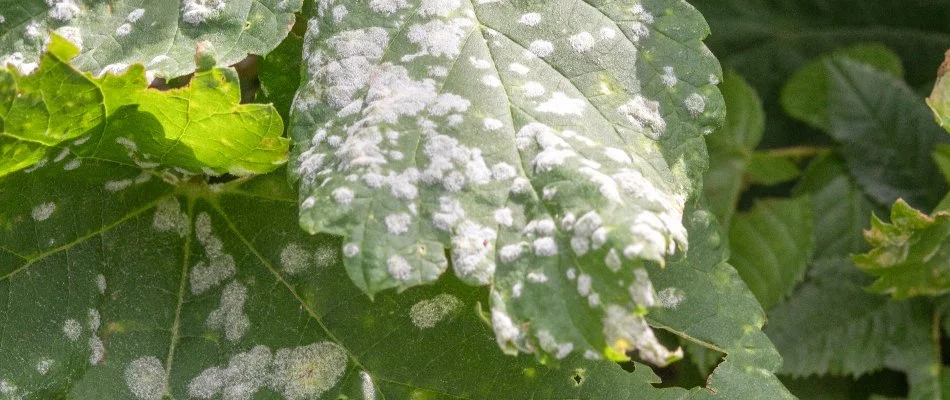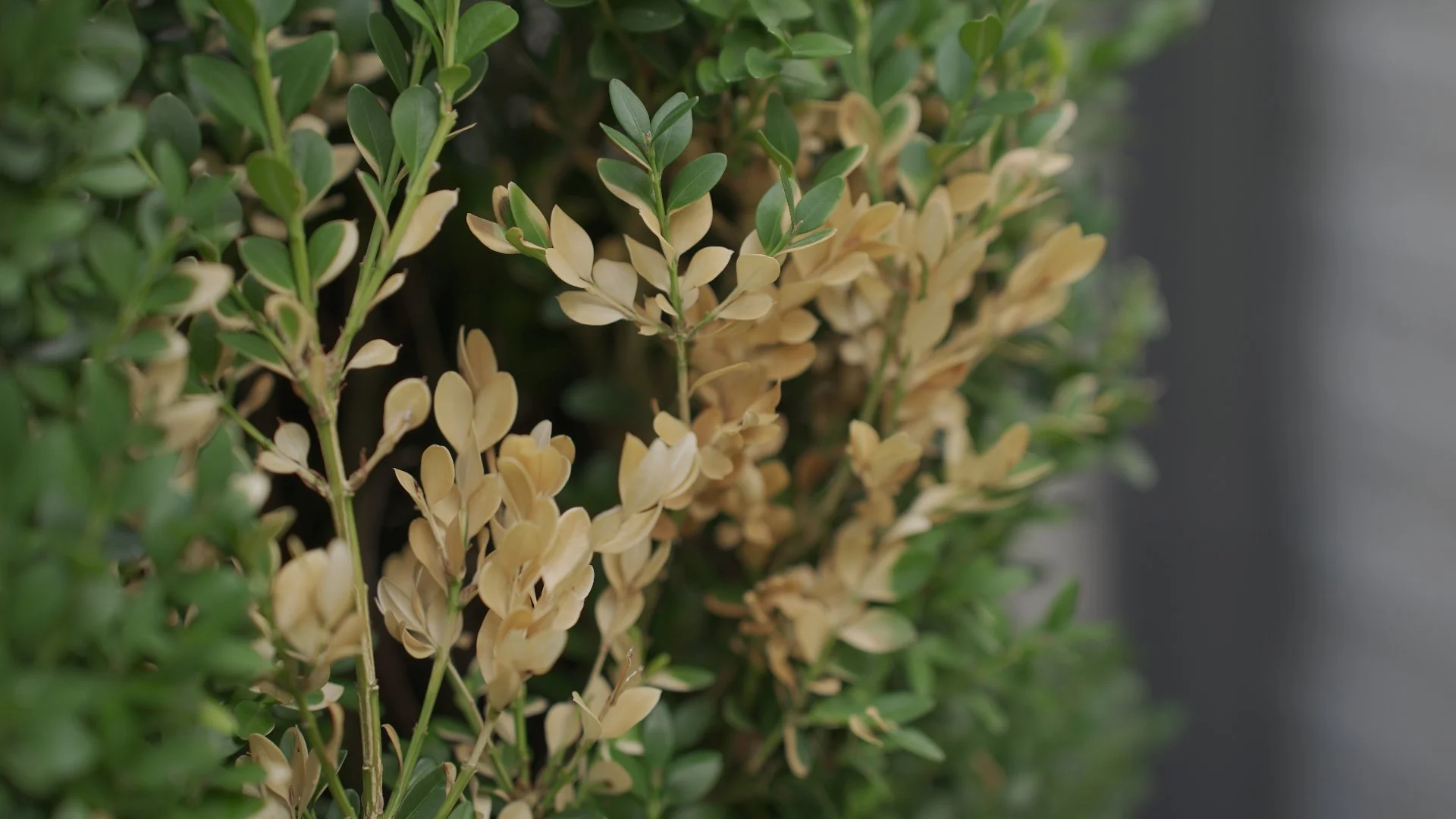Root rot, blight, powdery mildew, and scab are four fungal diseases threatening trees and shrubs in Tennessee. Root rot thrives in overly saturated soil, causing yellowing and browning leaves, leading to plant death if unaddressed. Blight spreads in wet, humid conditions, resulting in yellowing leaves and dead patches. Powdery mildew appears as a white, powdery substance on leaves in warm, humid environments. Scab manifests as small brown spots, common in cool, humid conditions. All these diseases can cause significant damage or kill plants if untreated. Prompt, curative treatments are crucial upon detecting any of these infections to protect plant health.
Root rot is a plant disease that thrives in overly saturated soil.

Root rot is a fungal disease that can cause significant damage to your trees and shrubs. This disease thrives in soil that is overly saturated with water, causing the roots to lack oxygen. Because of this, it's important to ensure that your soil has good drainage to help prevent this disease from infecting your plants.
If your plants become infected with root rot, you'll notice that the leaves on your plants will start to turn yellow and brown, and they may even fall off. If this disease is left untreated, it can cause serious damage to your plants and even kill them. If you suspect that your plants are infected with root rot, you'll want to reach out to plant care experts right away so they can administer a curative treatment to eliminate it.
Blight is a plant disease that results in yellow leaves, leaf drop, and dead patches.
Blight is a common tree and shrub disease that thrives in wet, humid conditions. This disease can cause significant damage to your plants, and if left untreated, it can kill them. Some of the symptoms of blight include yellowing leaves, leaf drop, and dead patches on your plants. Prompt intervention is crucial if your trees or shrubs are suffering from blight. If you notice any symptoms of this disease, make sure you contact plant care professionals immediately to schedule a curative treatment that will get rid of the fungal issue.
Powdery Mildew Results in White, Powdery Substance on Plant Leaves

Powdery mildew is a common fungal disease that can affect your trees and shrubs. This disease thrives in warm, humid conditions, and it can spread quickly if left untreated. If your plants become infected with powdery mildew, you'll notice a white, powdery substance on the leaves of your plants.
While powdery mildew is not that fatal to plants, this disease can cause premature leaf drop and significant cosmetic damage. It's important to seek the help of experts to address this fungal disease through curative treatments. They will make sure your trees and shrubs receive a highly effective treatment that is designed to target powdery mildew and stop it in its tracks!
Plants infested with scab develop brown spots or lesions.
Scab is a fungal disease that can affect your trees and shrubs. This disease develops when conditions are cool and moist. Scab-infected plants also develop small, brown spots or lesions on the leaves and stems. Without treatment, this disease can severely weaken your trees or shrubs and reduce their yield if they are fruit-bearing. If your plants are showing signs of being infected with scab, you'll want to reach out to professionals right away so they can treat your trees or shrubs with a curative treatment.
Give us a call today to schedule our tree and shrub disease control service.
If you're looking to protect your plants from various diseases, you've come to the right place! At Herbi-Systems, we offer a tree and shrub disease control service that provides effective curative treatments to address diseases, like powdery mildew, blight, scab, and root rot, among others, and keep your plants in tip-top health.
We offer this service to homeowners and business owners, as well as HOAs, in Memphis, Collierville, Germantown, and throughout the surrounding areas in Tennessee. Give us a call at (901) 382-5296 to schedule this service today!



Comments (0)
Thanks for your comment!
Thanks for your feedback! Your comments have been successfully submitted! Please note, all comments require admin approval prior to display.
Error submitting comment!
There is a problem with your comment, please see below and try again.